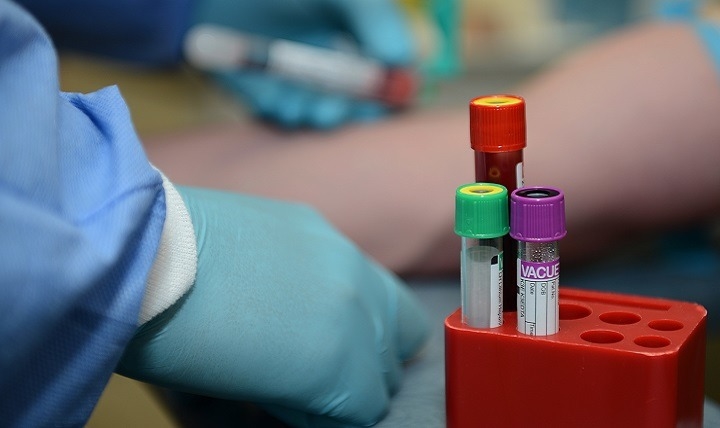
Screening Tests Recommended For Every Mom During Second Trimester Of Pregnancy
30 Mar 2018 | 3 min Read
Babychakra
Author | 1369 Articles
Tests during second trimester of pregnancy are important for monitoring the development of your growing baby.
Just like the first trimester when a pregnant women undergoes a few tests to ensure perfect health, second trimester screening comprises of few routine prenatal tests too. By following the doctor’s advice and undergoing routine check-ups, you can ensure a happy and safe pregnancy.

Blood tests during pregnancy second trimester
Second trimester screening blood tests include the following:
Glucose screenings check for gestational diabetes:
During pregnancy, some women (who had normal blood sugar levels pre-pregnancy) are prone to developing a type of diabetes known as Gestational diabetes. It can occur in 3% to 8% of pregnancies. If not diagnosed or treated, it can cause significant adverse effects to the health of the baby. The right time to get yourself screened yourself for this condition is 24 to 28 weeks. You will be asked to drink a high-sugar fluid and after an hour, your blood will be drawn. In cases of high sugar level in the blood, you will have to undergo a glucose-tolerance test, in which blood is drawn every hour for 3 hours after consumption of a glucose solution on an empty stomach.
Multiple Marker Test
You will be offered a blood test between 15 to 20 weeks called the multiple-marker test. It is a screening test for Down syndrome and neural tube defects. Results of the test are usually available within a week or two.
- A “triple screen” or “triple marker” test – It is a screening test that checks for alpha-fetoprotein (AFP), estriol, and human chorionic gonadotropin (hCG).
- A “quadruple screen” or “quadruple marker” tests measures the level of an additional substance, inhibin-A.
As this is only a screening test, it only indicates your likeliness of having an affected foetus; and a positive result requires further evaluation.
Imaging tests during pregnancy second trimester

Tests done during second trimester also include an ultrasound which is done between 18 and 20 weeks to examine a baby’s anatomy and development. You might have to undergo multiple ultrasounds throughout the second trimester if you have a high-risk pregnancy.
Genetic testing during pregnancy second trimester
Amniocentesis
Amniotic fluid is the fluid that surrounds the baby growing in the womb. Examination of the substances in this amniotic fluid can be carried out between 15 and 20 weeks. This test can provide a lot of information about the baby’s health, especially genetic information. This test can help in identifying the presence of:
- Inherited metabolic disorders like PKU (phenylketonuria)
- Down syndrome and other chromosome abnormalities
- Structural defects such as spina bifida and anencephaly
- Sometimes infection and Rh incompatibility
Percutaneous Umbilical Blood Sampling (PUBS)
After 18 weeks, foetal blood is obtained from the umbilical cord to check for chromosomal defects or any other abnormalities, like a low platelet count or thyroid disorders. This procedure also allows for blood or fluid to be transfused into the baby.
Talk to your doctor about these tests and when you need to do them. In case you have been experiencing any other symptoms, you might be advised to undergo additional tests apart from the regular tests during pregnancy second trimester.
Disclaimer: The information in the article is not intended or implied to be a substitute for professional medical advice, diagnosis or treatment. Always seek the advice of your doctor.
Also read: Screening Tests Recommended For Every Mom During Third Trimester Of Pregnancy
A


Related Topics for you
Suggestions offered by doctors on BabyChakra are of advisory nature i.e., for educational and informational purposes only. Content posted on, created for, or compiled by BabyChakra is not intended or designed to replace your doctor's independent judgment about any symptom, condition, or the appropriateness or risks of a procedure or treatment for a given person.
